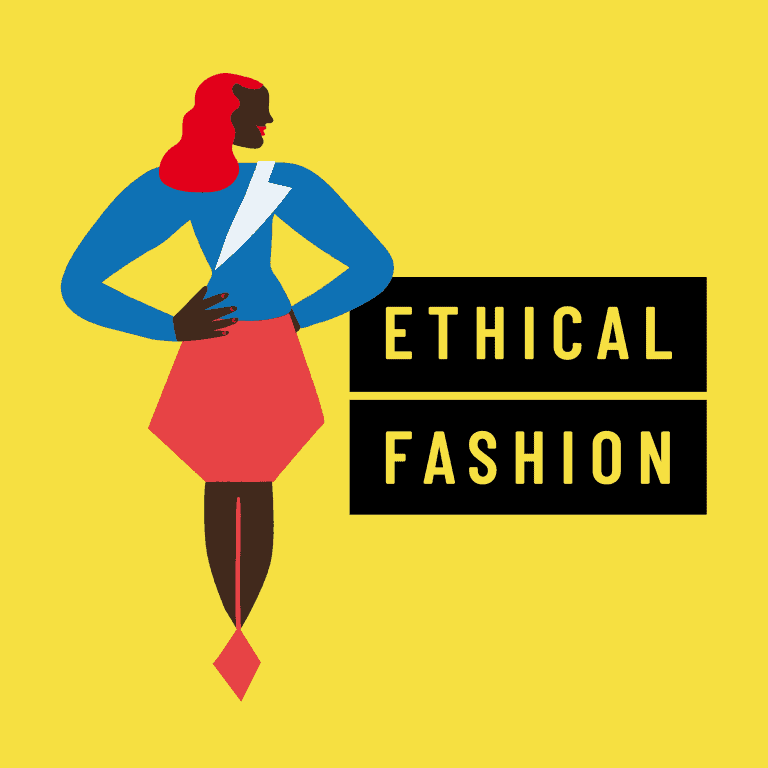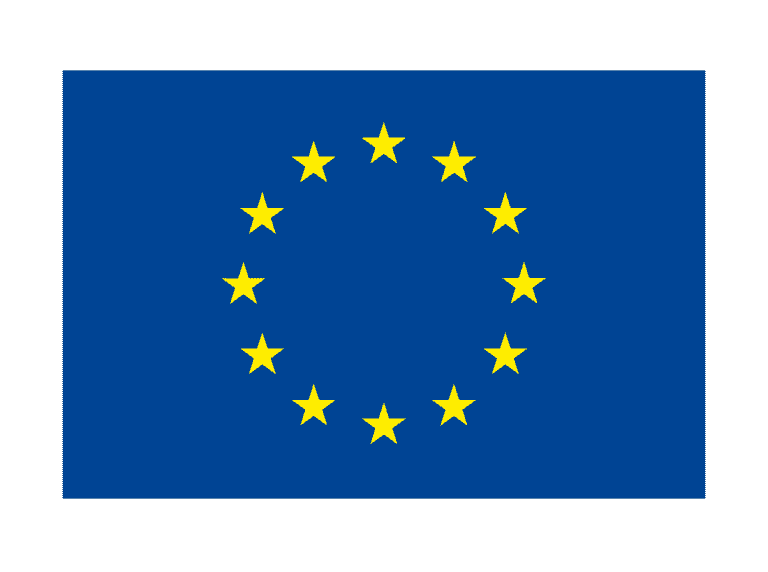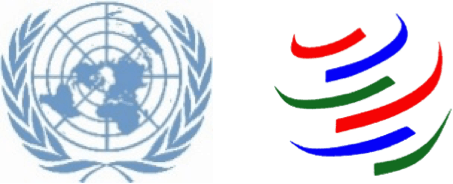SERIES 3
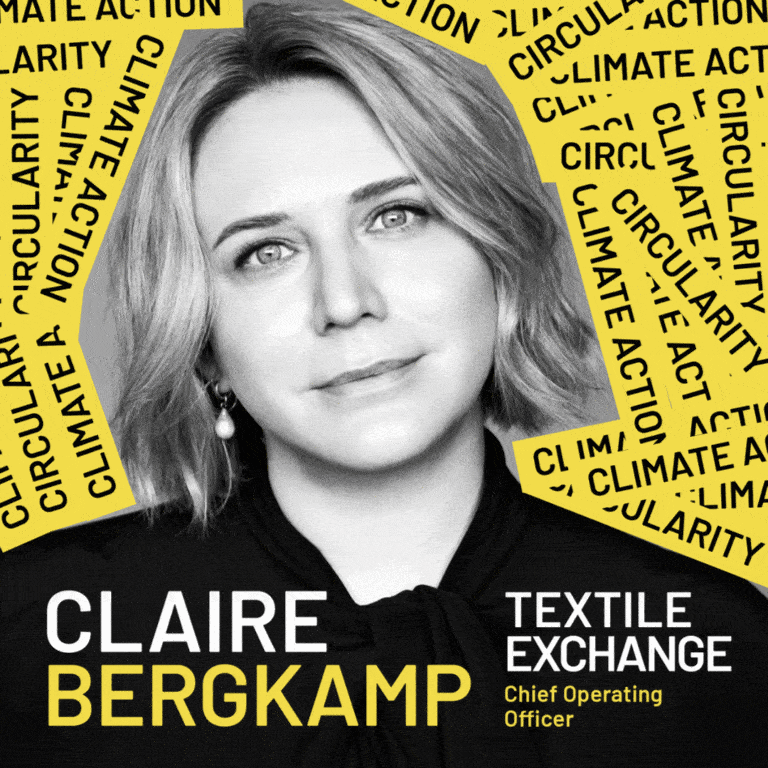
Episode 25
Textile Exchange’s Claire Bergkamp on Reducing Fashion's Climate Impacts
The fashion industry’s carbon footprint is massive. According to McKinsey, it’s around 4% of the global total. That’s roughly equivalent to the C02 emissions of the UK, France and Germany combined. Many brands have joined the UNFCC Fashion Industry Charter for Climate Action, and made commitments in line with the Paris agreement, but there’s a lot of work to do to reduce emissions. Textiles play a key role. What are ‘preferred materials’? How sustainable is cotton? Is recycled polyester the answer? What about the new innovations in biotech fibres? And how can brands and consumers make the best choices, and avoid greenwashing?
Textile Exchange is a global non-profit that seeks to positively impact climate through accelerating the use of preferred fibres across the global textile industry. They aim to get the industry to reduce emissions from fibre and material production by 35 – 45%. Can we do it? What will it take? In this info-rich Episode, Simone and Clare ask the expert – Claire Bergkamp, Textile Exchange’s COO.
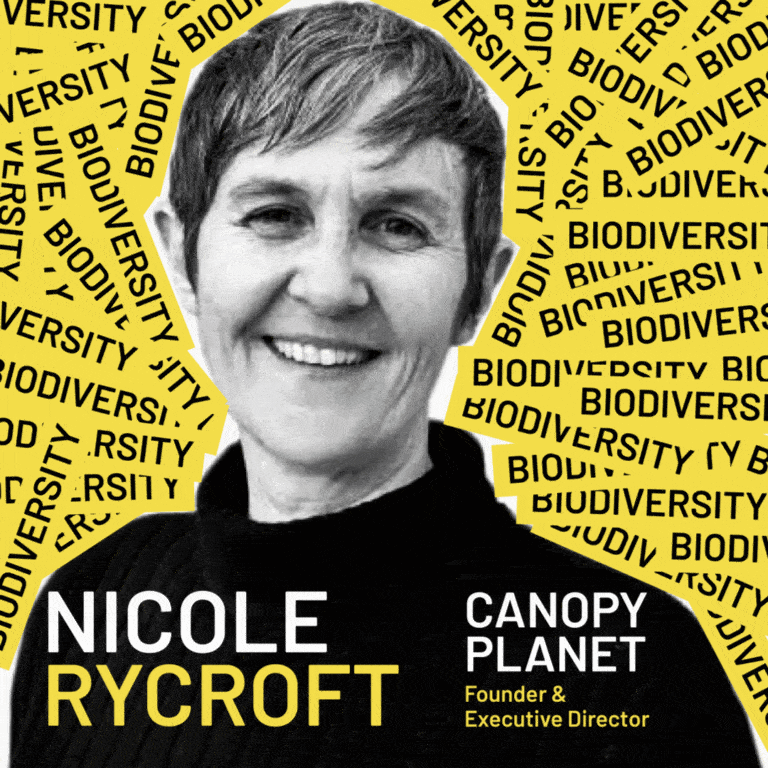
Episode 24
Biodiversity, Forests and Fashion with Canopy Planet’s Nicole Rycroft
Did you know that every year, 3.2 billion trees are cut down to make paper packaging, or fabrics such as rayon and viscose? Many of these trees come from the world’s most ancient and endangered Forests. We’re smarter than that, says this week’s guest, Nicole Rycroft, Founder and Executive Director of Canopy Planet.
Canopy is on a mission to protect the world’s forests, species, and climate, and to help advance Indigenous communities’ rights. And Nicole wants fashion industry to transition to what she calls ‘next generation solutions’ – using waste feedstocks instead of virgin trees to make cellulosic fibres. Can we do it? Why is biodiversity such a hot topic? And how are brands, policy makers and investors stepping up?
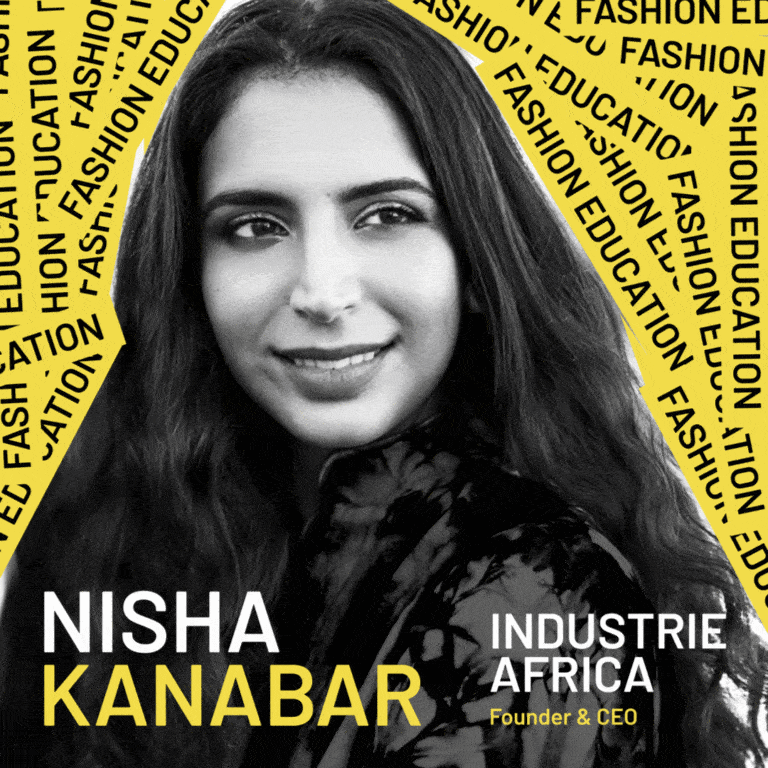
Episode 23
Industrie Africa’s Nisha Kanibar on Authentic Storytelling
Independent fashion brands are changing the sustainability conversation globally, but how can they step up their impact? Often it’s smaller brands that are leading innovation, but the bigger ones get the attention. Emerging African designers are well-placed to lead the way on authentic sustainability storytelling, but they need to excite investors from the Continent, as well as the global playing field. How can they amplify their message? Who should be listening? What is the role of fashion education and accelerator programmes on moving this forward?
In this lively discussion with Nisha Kanibar, CEO and founder of curated African fashion platform Industrie Africa, Simone and Clare discuss the necessity of accurate, effective and persuasive communications around sustainability for fashion SMEs.
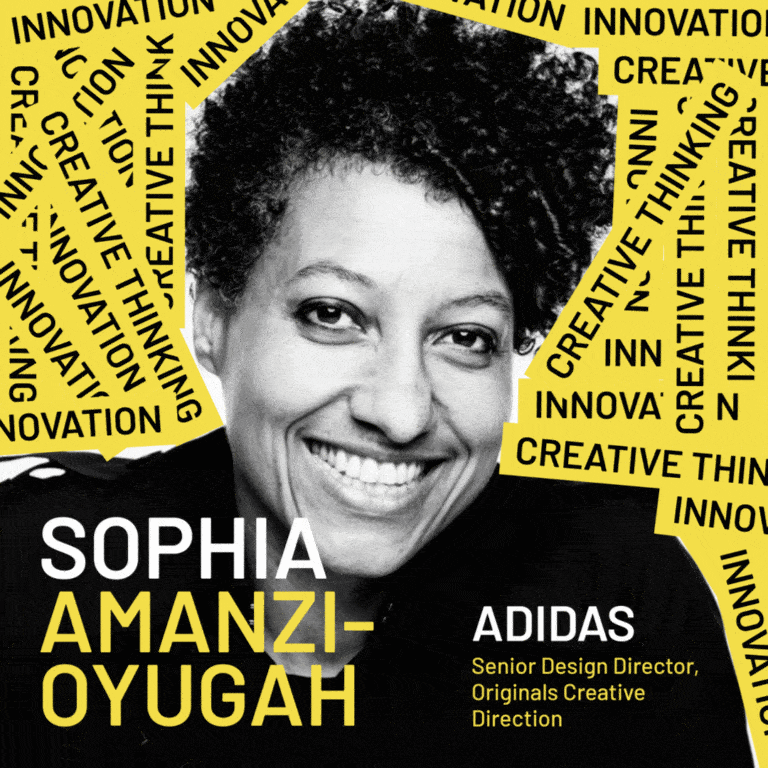
Episode 22
Originals Thinking – Meet Adidas Designer Sophia Amanzi-Oyugah
How can innovation and artisan craft come together in a large global brand? What is the role of design when it comes to implementing sustainability? Designers don’t not create brands’ ESG goals but they have to put them into practice when they imagine the product, particularly when it comes to materials. “We don’t have the final answer but we are all responsible to ask the questions,” says our guest today, Sophia Amanzi-Oyugah, who is Adidas’s Senior Design Director, for Originals Creative Direction. A beautiful conversation about creativity, opportunity, sustainability and inclusion, and the power of storytelling, with one the Ethical Fashion Initiative’s most exciting partners.
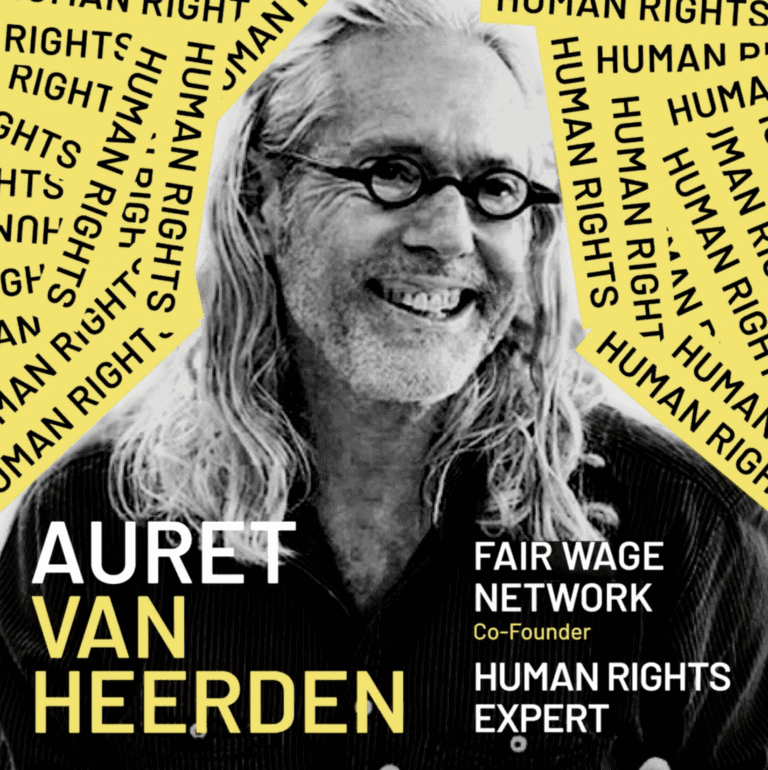
Episode 21
Human rights expert Auret Van Heerden
There is no sustainability without dignified working conditions and respect for human rights, yet fashion’s supply chains are notorious for their failings on this front. This week Simone and Clare talk with international labour rights expert Auret van Heerden about what can be done. A TED talker, with a background at the ILO, Auret is the man Bill Clinton tasked to lead a team to get to the bottom of child labour issues in the US, and he’s advised everyone from Apple and Nike to the Ethical Fashion Initiative. What’s the first question he asks brands who are serious about ESG? Find out in this information-rich, emotional discussion about what really matters – people.
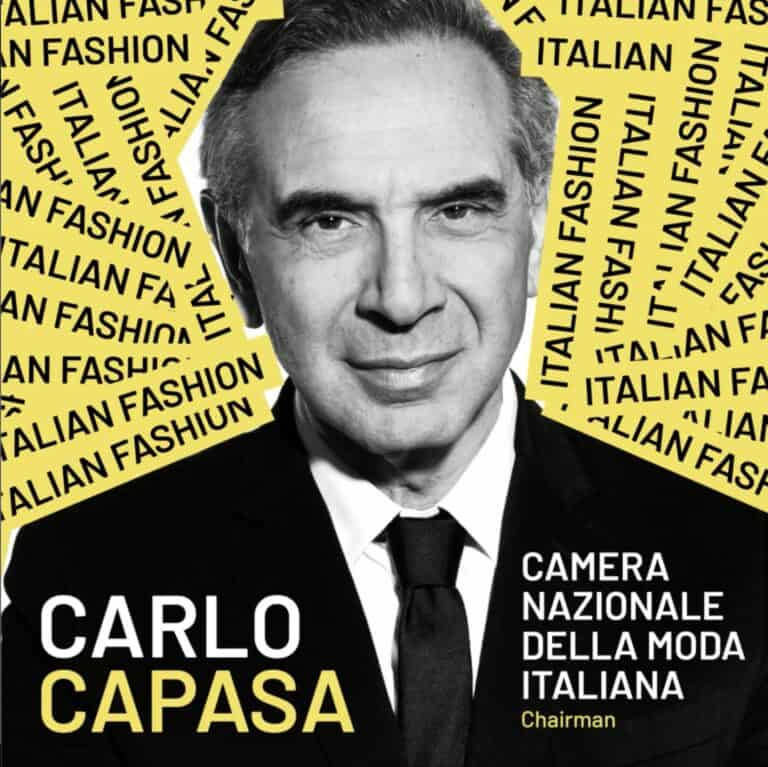
Episode 20
CNMI's Carlo Capasa
Fashion is Italy’s second biggest industry, so it’s got the opportunity, and the responsibility, to make a big impact. After the Ethical Fashion Initiative collaborated on the Sustainable Fashion Awards at Milan fashion in September, Simone and Clare are delighted to welcome Carlo Capasa, chair of Camera Nationale della Moda Italiana (Italy’s peak fashion body) to the podcast to discuss how the industry is stepping up. How much progress has been made? What are the biggest ESG challenges today? What is the role of cross-industry collaboration? And, will legislation change the game?
SERIES 2
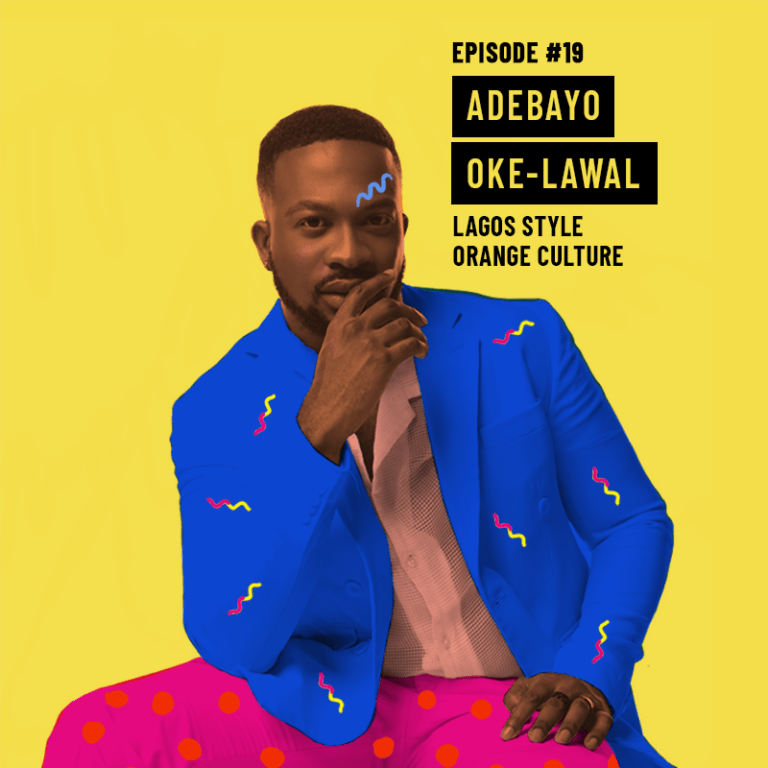
Episode 19
Orange Culture designer Adebayo Oke-Lawal
Our guest this week is the Lagos-based fashion designer Adebayo Oke-Lawal, founder of Orange Culture. This luxury label has combined fashion with activism since 2011, and is ethically produced in Nigeria.
Adebayo is an inspiration. His work has won him accolades in international fashion circles but it’s his approach to movement building and giving back that wins hearts. He uses his platform to stand up for issues he believes in – not least, fighting toxic masculinity. He also makes time to mentor emerging African designers.
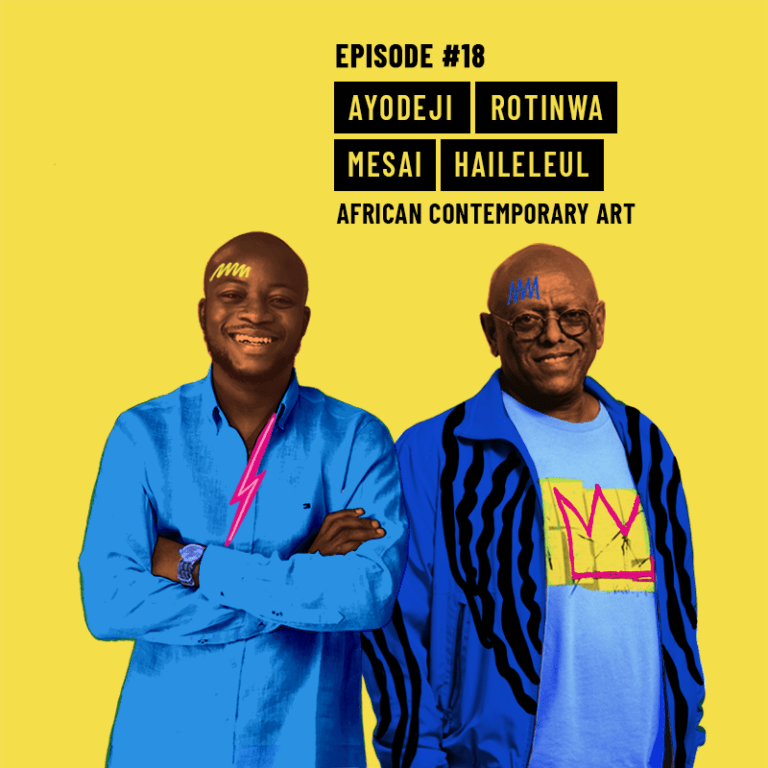
Episode 18
African Contemporary Art
This week we’re focused on contemporary African art. Your host is the Nigerian writer and journalist Ayodeji Rotinwa who welcomes the renowned Ethiopian gallerist and self-taught art historian Mesai Haileleul to be interviewed. Mr. Haileleul opened the first gallery representing Ethiopian artists in Los Angeles in the 1990s and now, with Rakeb Sile, co-runs Addis Fine Art – a leading contemporary gallery specialising in art from the Horn of Africa & its diaspora with venues in London and Addis Ababa.
This is a podcast about how the African contemporary art market is booming internationally, and what’s driving that interest. But it’s also about the importance and opportunities of focusing on home. Full of fascinating insights on everything from the history of the art scene in Addis Ababa, to the challenges of building arts infrastructure when building roads and schools takes priority, ultimately this is a conversation about the business of culture and how to support it.

Episode 17
Meet Uganda's Top Model Agent Joram Muzira
In 2020 The Opportunities Are Here Project X arrived in Uganda, presented by the Ethical Fashion Initiative and the EU. Surely the EFI’s most fun project to date, this televised talent competition followed a nationwide call for young creative entrepreneurs in Africa. But there’s also serious agenda – building economic opportunity.
The show’s three judges included Joram Muzira Job, Uganda’s top model agent, and in this fabulous interview Joram shares his career story and advice for the next generation coming through. We talk Kampala’s thriving fashion scene, how to use social media to get ahead, strategies for winning over investors, and the power of following your dreams.
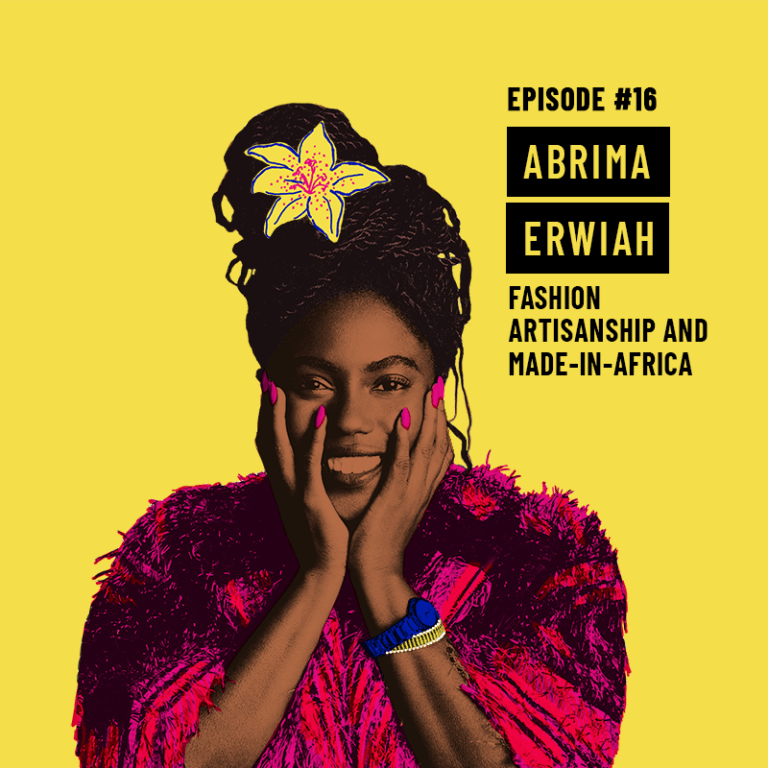
Episode 16
Studio 189’s Abrima Erwiah on Fashion Artisanship and Made-in-Africa
This episode is guest hosted by American stylist and creative director Alexander-Julian Gibbson. In this vibrant conversation with Abrima Erwiah, co-founder and president of fashion social enterprise Studio 189, you’ll hear all about creating, running and building a fashion business with purpose in Accra and New York. Studio 189 is an award-winning fashion label based in Ghana and the United States. Its goal is to promote African and African-inspired fashion. Abrima and AJ explore the challenges and benefits of local production, the human aspect of slow fashion and the beauty of knowing the stories of the people behind the process.
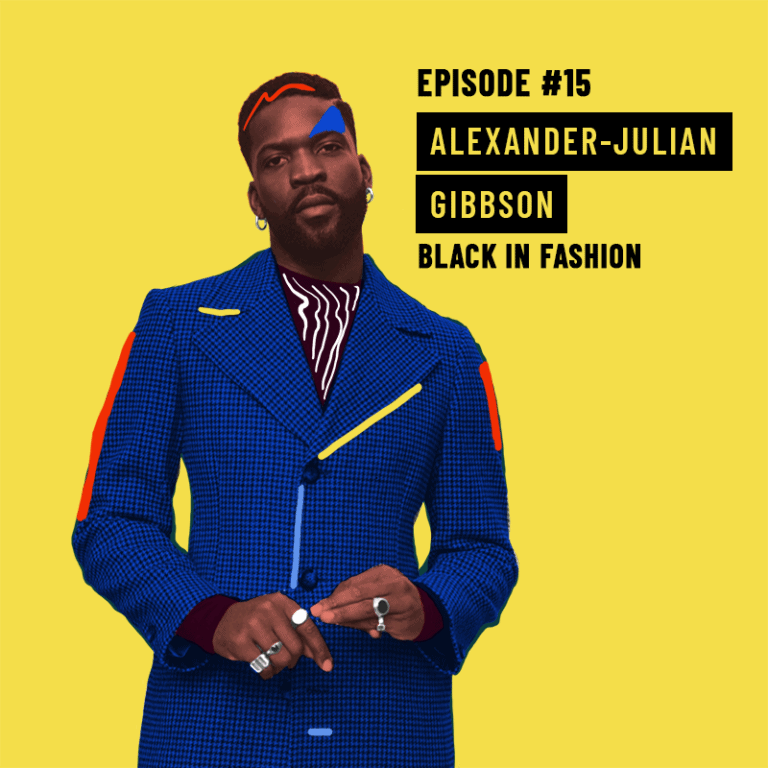
Episode 15
Alexander-Julian Gibbson on Diversity, Creativity and Lagos Style
Alexander-Julian Gibbson is a Houston-based stylist and content creator known for his directional shoots for magazines (think GQ, Vogue and Flaunt) and musicians like Patoranking. This week, Simone and Clare meet the brilliant Nigerian-American to discuss Lagos style, why African fashion talent is so hot right now, and the career pathways for emerging Black creatives.
They ask, what are the barriers and how can we support the next generation? They also have a frank conversation about the state of diversity and inclusion in the global fashion industry, what needs to change and what’s being done.
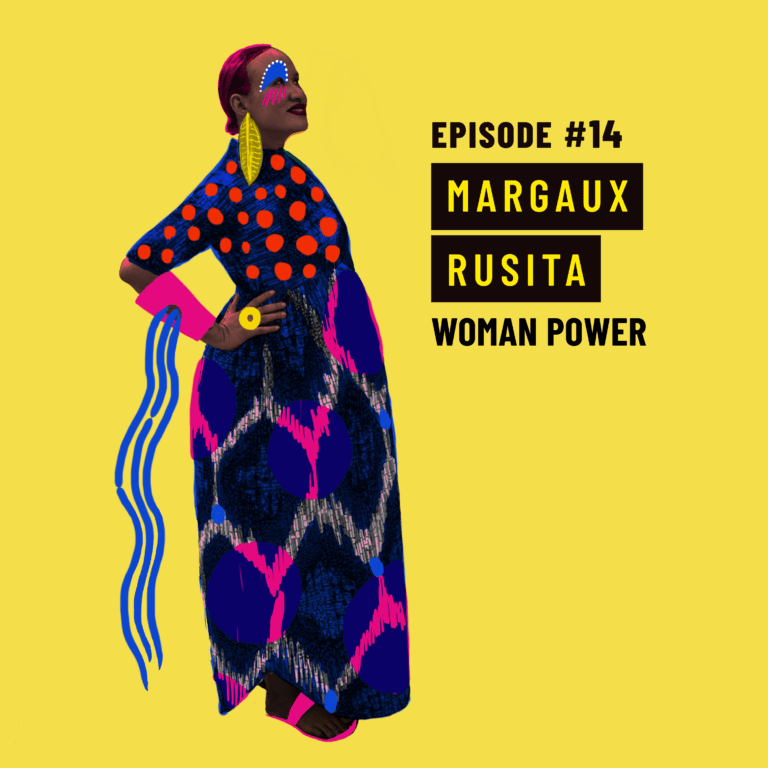
Episode 14
Woman Power - Margaux Wong
This episode is about fashion and art, healing and opportunities in Burundi. Today a creative scene is blossoming in Bujumbura with artists, musicians, photographers and designers using the power of self-expression and the beauty of creativity to connect, and foster new economic opportunities.
Margaux Wong designer Margaux Rusita is one such creative. She designs sustainable and ethically-produced jewellery, hand-crafted from cow horn and brass, and was part of the Ethical Fashion Initiative’s inaugural Accelerator Programme for African Designers. An artistic spirit with beautiful energy, she is also mother to five children, and passionate about female empowerment.
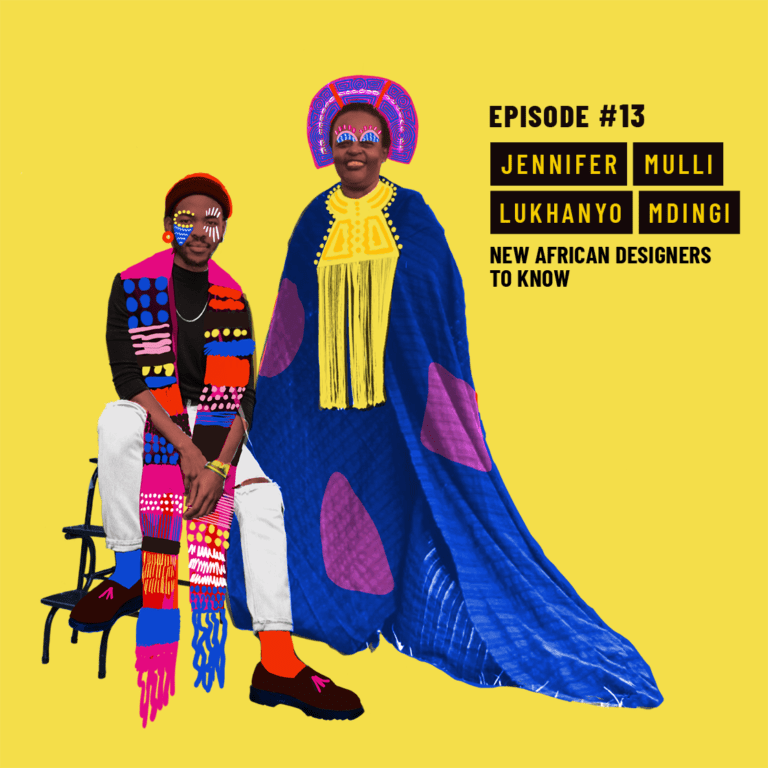
Episode 13
African Designers to Know - Lukhanyo Mdingi and Jiamini Kenya
Jennifer Mulli is the founder of Kenyan brand Jiamini, made by women for women. Known for its jewellery – in particular extravagant beaded neckpieces and bracelets- as well as bags, they use age-old craft traditions passed down generations and later brought to life by skilled female artisans. Mulli discusses empowering women through ethical employment pathways and the beauty of using heritage fashion techniques to do so.
Lukhanyo Mdingi is a South African fashion designer based in Cape Town who is gaining accolades globally for his sophisticated men’s and womenswear collections. A textile enthusiast, Mdingi manufactures locally with a luxury aesthetic. In this conversation, we talk about how a small brand can take on the international market, the slow fashion approach and the opportunities for reshoring garment production in South Africa.
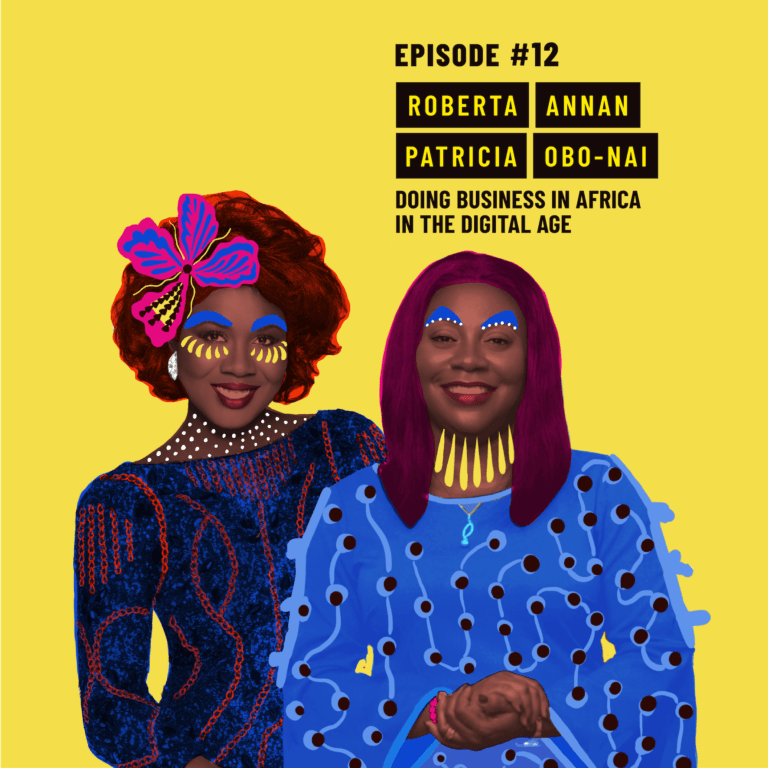
Episode 12
Doing Business in Africa in the Digital Age
Access to technology is changing the game for a new generation of young African entrepreneurs, and the creative economy provides exciting opportunities on the continent. But with young people making up 60% of Africa’s unemployed, how can they overcome career challenges and harness digital connectivity to get ahead? And what skills and qualities are companies looking for in potential young employees today?
This episode is guest hosted by Roberta Annan, impact investor and founder of the African Fashion Foundation. She is in conversation with Patricia Obo-Nai, Chief Executive Officer of Vodafone Ghana. They discuss mentoring new gen talent, the importance of digital and financial literacy, women in leadership, their own career paths to becoming prominent female business leaders in Ghana, and strategies for emerging creative entrepreneurs in the digital era.
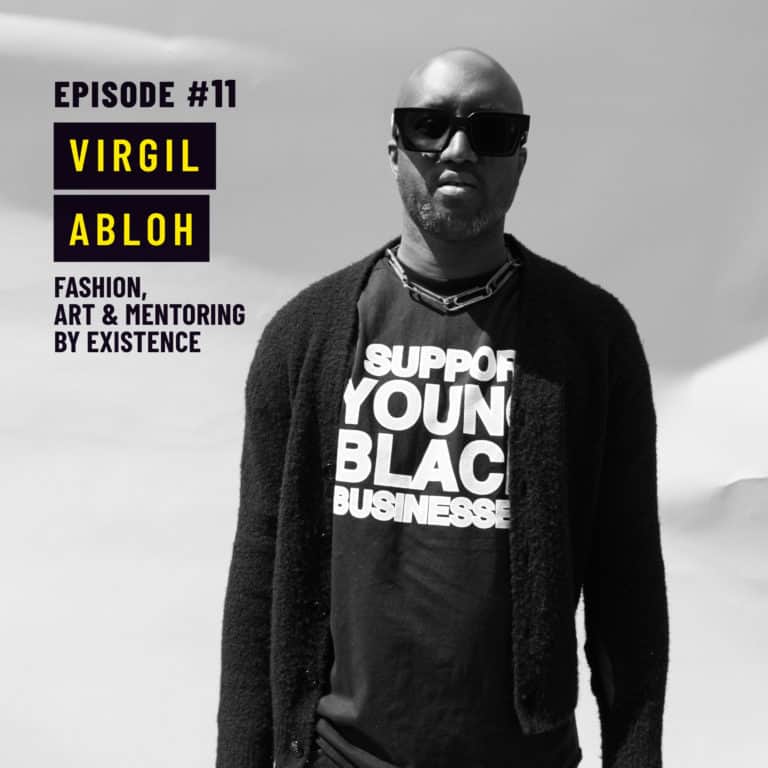
Episode 11
Fashion, Art and Mentoring by Existence with Virgil Abloh
Virgil Abloh is one of the most interesting designers in the global fashion industry today. He is the artistic director of menswear at Louis Vuitton, as well as the creative force behind his own brand, Off-White. A true polymath, he is a multimedia artist who moves culture forwards and describes his creative process across multiple platforms as “taking an idea and dreaming it aloud”.
In the first episode of Series 2 of the Ethical Fashion Podcast, Simone and Clare sit down with Abloh to discuss diversity and inclusion, his latest projects, what he calls “mentoring by existence” and his personal creative journey. It’s a rollercoaster ride conversation, swooping from Andy Warhol to Miles Davis and James Baldwin to Caravaggio, fashion students, Abloh’s aims and inspirations, and the role of a designer today.
SERIES 1
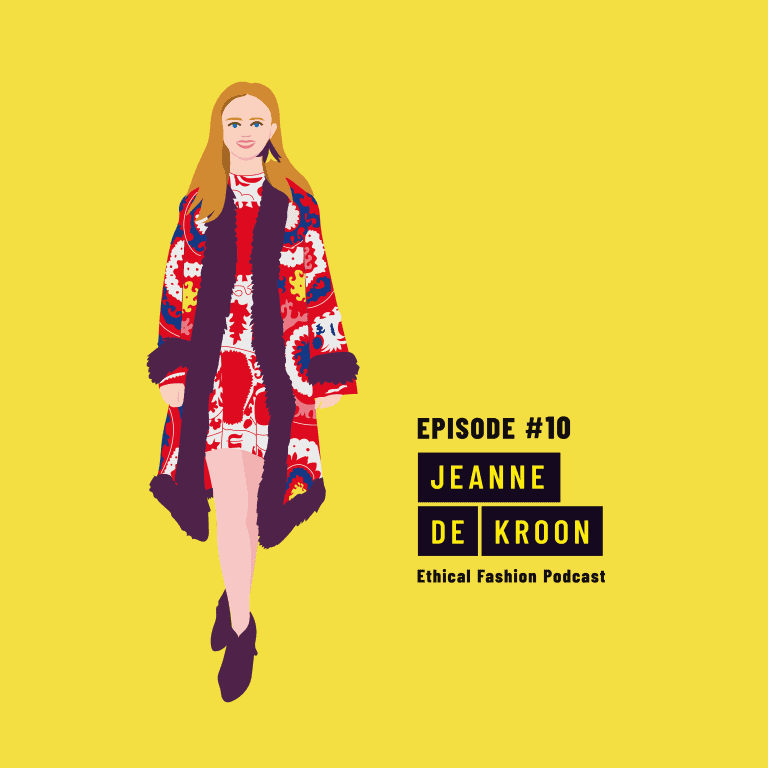
Episode 10
Purpose & Social Sustainability with Jeanne de Kroon of Zazi Vintage
In the final episode of Series 1, Simone and Clare talk with Jeanne De Kroon, the founder of Zazi Vintage – a high-end fashion social enterprise that celebrates upcycled fabrics and artisan techniques. Zazi works with the EFI in Afghanistan.
Jeanne is a free spirit who says her mission is to create: “a narrative that connects and weaves cultures together through cloth, that works with women storytellers all over the world.”
This vibrant conversation is really good fun, but, like fashion, it also engages with serious, complex issues. We discuss the deep questions shaping the sustainability discourse today: who profits and who pays the true cost, transparency, finding purpose, and seeking ways to bridge different cultures.
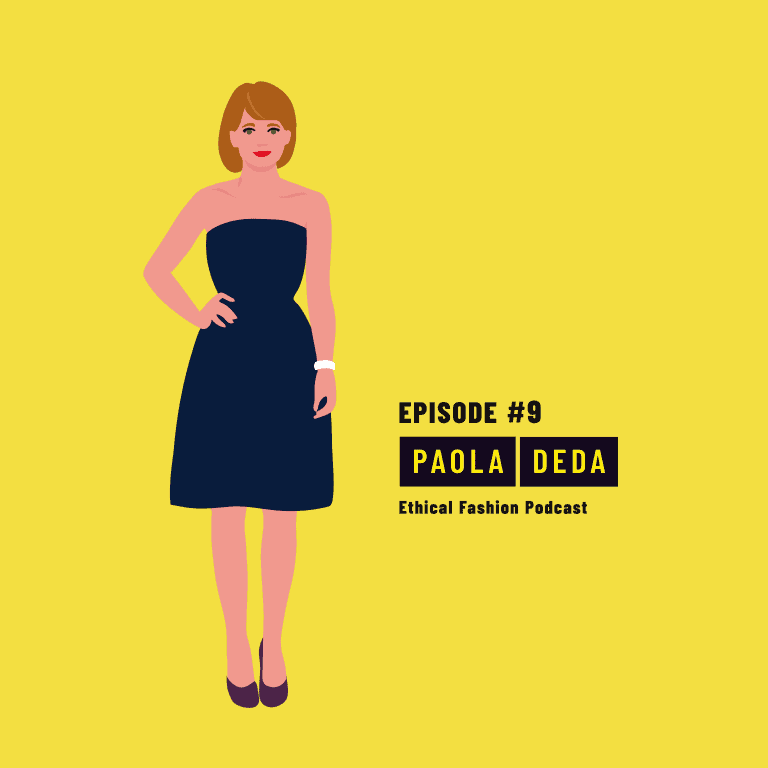
Episode 9
Fashion Industry Fix? Social & Environmental Standards with Paola Deda, Jill Dumain and Beatriz Cunha.
This week, our theme is Social and Environmental Sustainability Standards. Why do we need to talk about this? Standards exist. Indeed, some say there are too many. And yet problems in fashion’s supply chains persist. The fashion industry is well known for it’s labour issues and adverse environmental impacts. Are things improving? What is missing when it comes to compliance, collaboration and consumer input, and how might increase transparency and accountability?
To fill out the picture and explore the solutions, your hosts Simone Cipriani and Clare Press interview: Paola Deda, who works for the UN Economic Commission for Europe and is active in the UN Alliance for Sustainable Fashion, Jill Dumain, CEO of the company behind the BlueSign certification system and Beatriz Cunha, a specialist in the textiles, clothing, leather, footwear sector at the ILO.
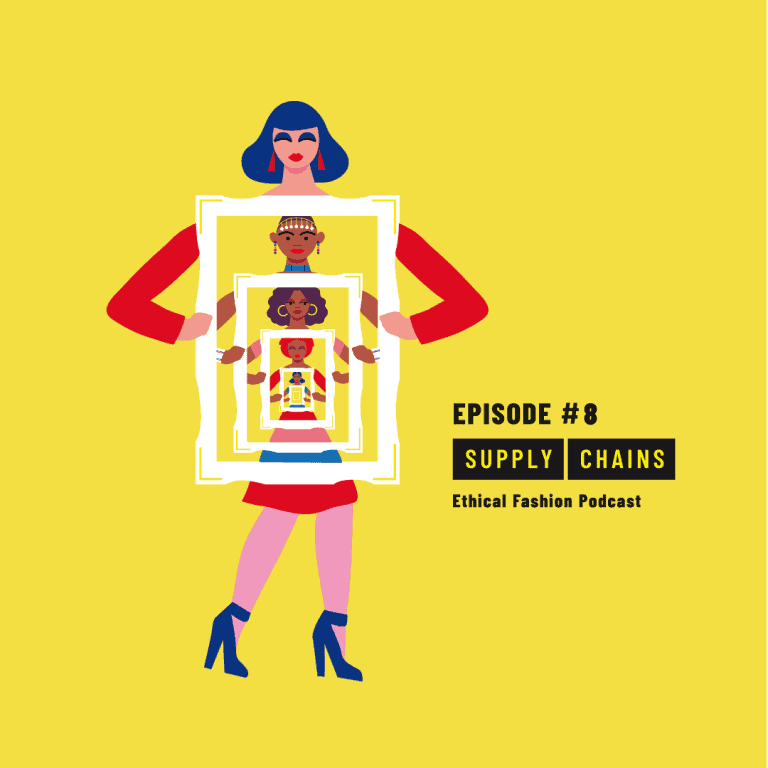
Episode 8
Ethical Fashion Supply Chains
From a lack of transparency to a business model that squeezes those at the bottom, fashion’s supply chains can be a sustainability nightmare. There’s a disconnect between the consumers who buy clothes, the retailers who sell them, the designers who conceive of them and all the different suppliers further down the chain, who cut and sew them, produce the textiles and the raw materials.
And while the fashion industry has been very effective in optimising shareholder wealth, it has been less so when it comes to creating wealth for other stakeholders – in particular suppliers and workers.
The current system favours ‘buy cheap, sell high’, compressing the cost of production. Suppliers find themselves competing on price and are often forced to compromise on employment standards to stay in business.
So what’s the alternative? In this Episode we ask, how can we create positive sum relationships, rather than zero sum transactions in the fashion supply chain? What happens when we start to view suppliers and workers as true stakeholders rather than simple as costs?
Simone sits down with Sergio Tamborini, CEO of Italian luxury textiles leader Ratti Spa. Clare discusses transparency with Remake Our World’s Ayesha Barenblat, and profit sharing with Rituraj Dewan, cofounder of the Indian social enterprise 7 Weaves Silk.
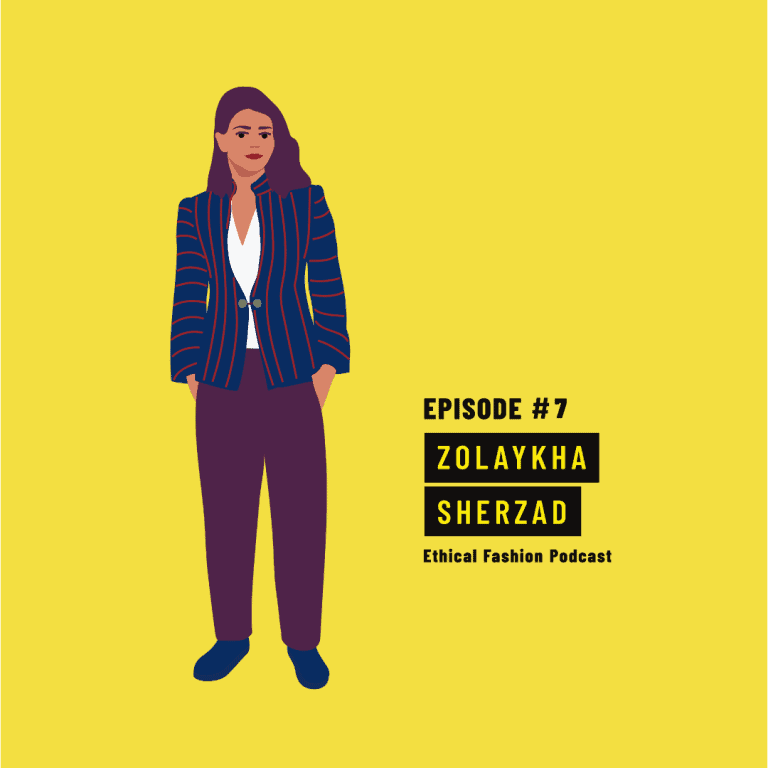
Episode 7
Zolaykha Sherzad - Made in Kabul
Acting as a bridge between fashion brands and artisan producers, the Ethical Fashion Initiative carefully measures the impact of each order, to ensure that the work is positively impacting the lives of the artisans, and that each project works towards the UN Sustainable Development Goals. This is sometimes difficult, always rewarding work – and perhaps nowhere more so than in Afghanistan.
There, the EFI’s main fashion partner is Zarif Design. In this episode, your hosts Simone Cipriani and Clare Press sit down with Zarif’s inspiring founder, Zolaykha Sherzad to hear how she established her social enterprise to bring beauty, harmony and hope to one corner of the city she grew up in.
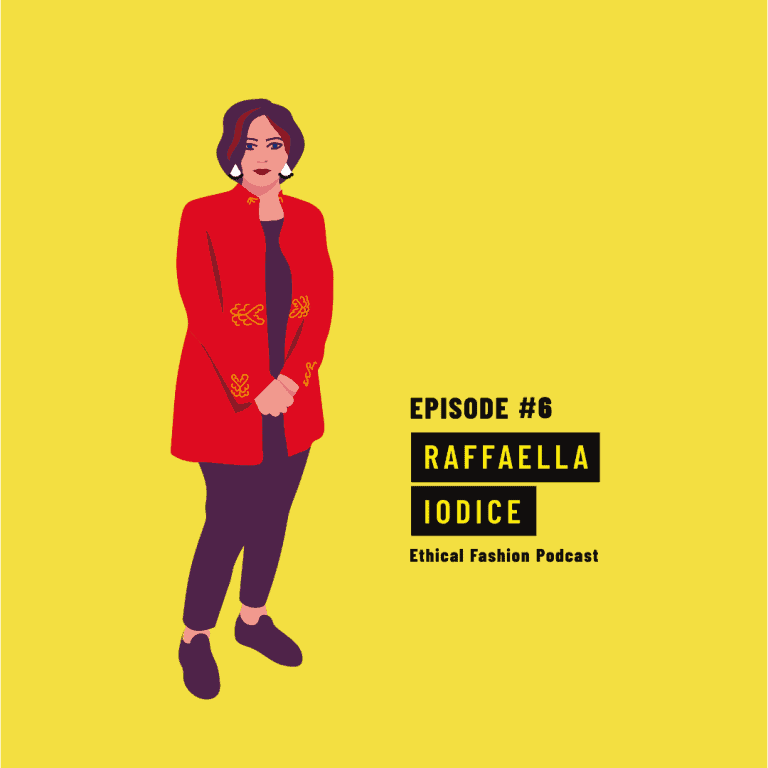
Episode 6
Making a difference with Raffaella Iodice
You’ve probably heard Simone say, “It’s a very serious business, fashion.” Done right, the business of fashion can provide pathways for fair work and hope in places where they’ve been lacking. But how do our institutions put this into practice in areas afflicted by conflict and humanitarian disaster?
In this Episode, Clare talks the European Commission’s Raffaella Iodice to find out how it all works, and learn how the Ethical Fashion Initiative began its projects in Afghanistan. And to discover Raffaella’s personal story too – this is a conversation about finding purpose and following your dreams.
At the time of recording, Raffaella led DEVCO – the Directorate-General for International Cooperation and Development. Today, she is head of unit at ECHO – the Directorate-General for European Civil Protection & Humanitarian Aid Operations. In all her roles, she has brought compassion, integrity and a life-long passion for fashion.
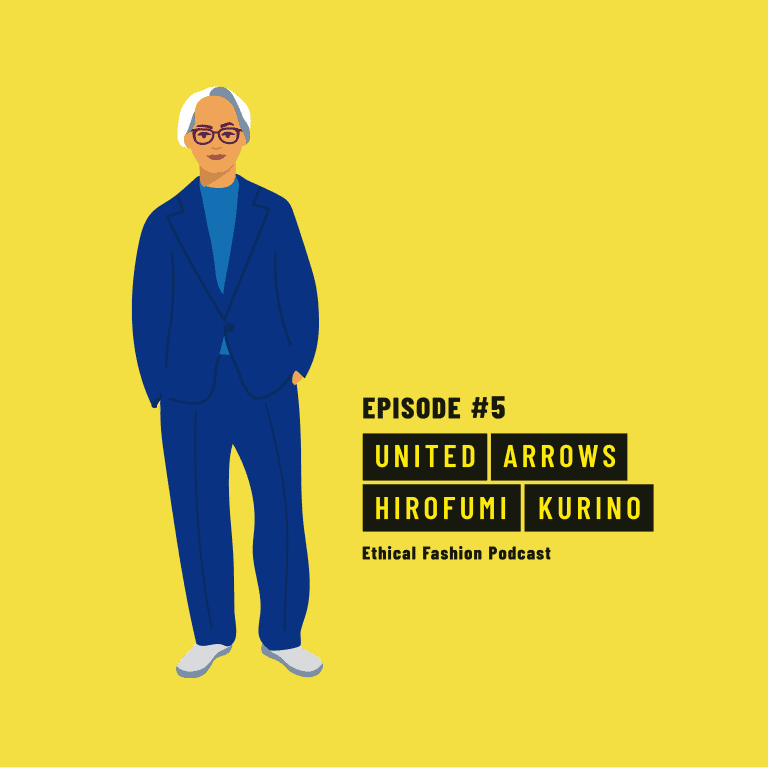
Episode 5
Tokyo Style with Hirofumi Kurino of United Arrows
Come with us to Tokyo Fashion Week, where your hosts Simone Cipriani and Clare Press met with longtime friend of the Ethical Fashion Initiative, Hirofumi Kurino of United Arrows.
According to Business of Fashion, he’s a “leading arbiter or style”. Polimoda calls him “a fashion oracle” and Vogue, one of the most stylish men in fashion. Mr. Kurino also has a fine understanding of the importance of socially responsible business. United Arrows was the first Japanese retailer to work with the EFI, back in 2013.
A fascinating look at Japanese style, what makes successful retail and the importance of sustainability. Plus you’ll hear all about how Mr Kurino launched a United Arrows sub-brand, Tégê, with accessories made in Kenya and men’s tailoring sewn in Japan using artisan produced fabric from Burkina Faso. It’s all about the mix, he says. After all, Kurino-san is also a DJ.
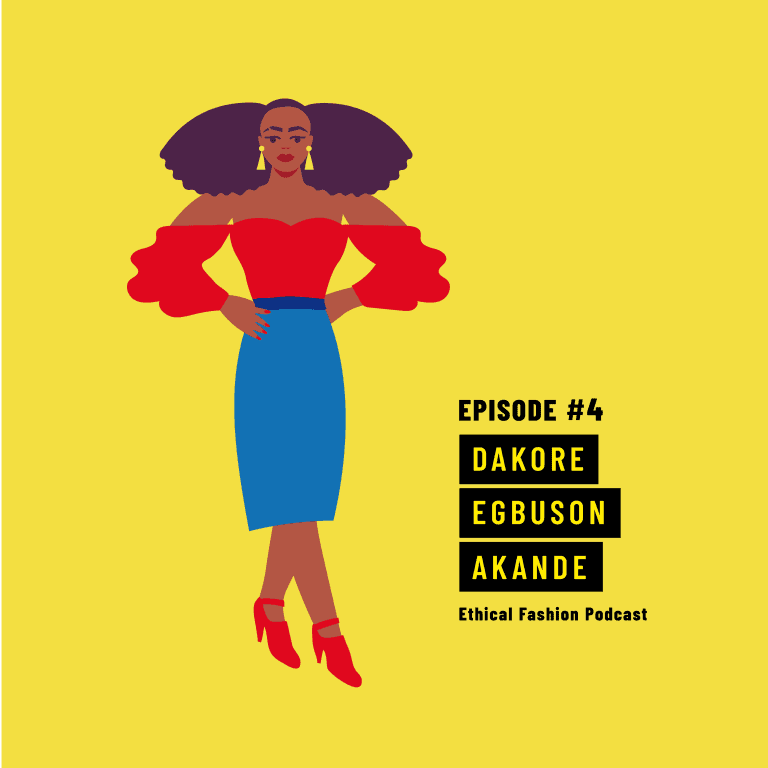
Episode 4
Mentoring African Fashion Talent - Dakore Egbuson-Akande
The Ethical Fashion Initiative Accelerator is programme for African designers supports young fashion talent to become investment ready, expand their supply chains, scale up their production, and build their fashion businesses. In this episode, your hosts Simone Cipriani and Clare Press catch up with one of the mentors, Nigerian actor Dakore Egbuson Akande.
Dakore is Nollywood royalty. She has appeared in more than 50 films, including the romantic comedy Isoken, for which she won an African Academy Movie Award for Best Actress in 2018. She started out a TV presenter, she also sings and today does important humanitarian work.
This conversation explores the power of creativity and the opportunities for economic advancement as well as cultural celebration and exchange, provided by the arts.
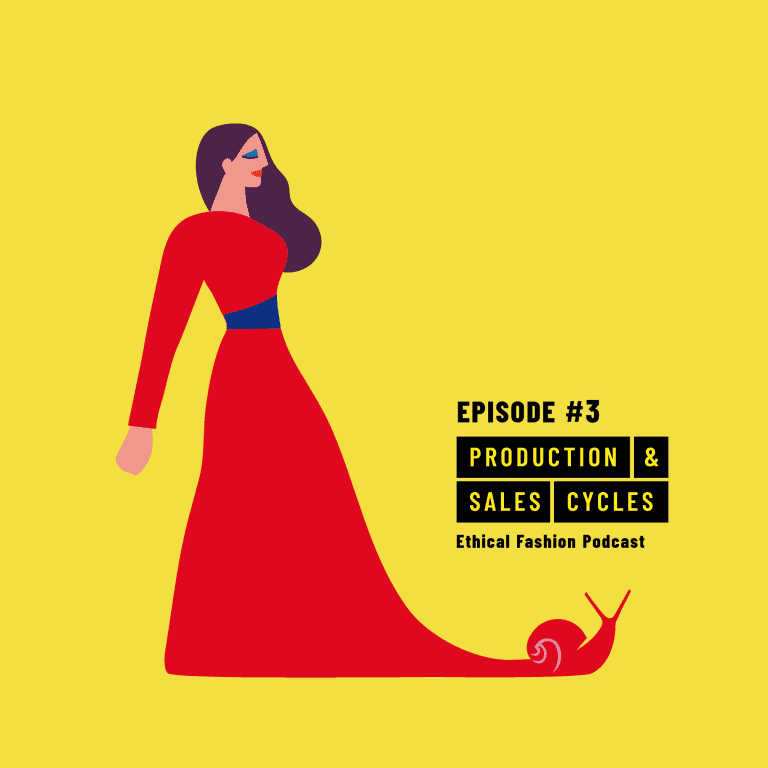
Episode 3
Overproducing & Undervaluing Fashion - Slow Fashion Seasons
Fashion’s discount culture, sped-up sales cycles and overproduction are out of control – and COVID19 is adding extra pressure.
Will the industry take this chance to rethink, or hurtle along even faster in the race to the bottom? How might we consciously slow down and consider all stakeholders to rebuild value in fashion made to love and last?
In this Episode, your hosts Clare Press and Simone Cipriani talk to Sarah Rovis, CEO of the Australian accessories brand Mimco; Robin MacAndrew who heads up the social enterprise Artisan Fashion in Kenya; and Dexter Peart, who with his twin brother Byron Peart, runs the consciously sourced fashion and homewares platform Goodee.
Our music is from the original production From Kabul to Bamako, music directed by Saïd Assadi.
This podcast was produced with the financial support of the European Union. Its contents are the sole responsibility of ITC Ethical Fashion Initiative and do not necessarily reflect the views of the European Union.
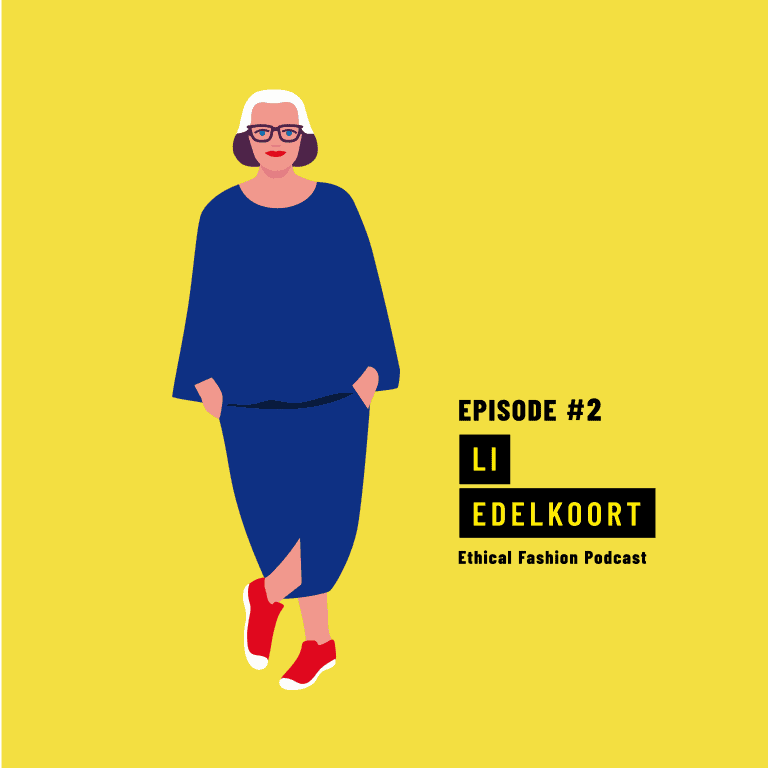
Episode 2
Trend Forecaster Li Edelkoort talks Slow Fashion & Consumerism
In this episode, Simone and Clare are in Paris to talk with the great Dutch trend forecaster Lidewij Edelkoort and hear her insights on where fashion – and culture – is headed.
“We will change possibly everything we do now. It’s going to be a radical moment of change,” says Li, who once described her work as “archeology of the future”.
Li’s company Trend Union puts out riveting forecasts and reports predicting what’s next. You’ve no doubt heard of her famous Anti-Fashion Manifesto published in 2014. And you probably read recently about her ideas on how coronavirus has led us into a quarantine of consumption from which we might, if we’re smart, choose to press reset button. This interview recorded before that, but it is, unsurprisingly prescient.
From slowing down and doing more with less to new economic models. From reconnecting with storytelling to the tactility of textiles and the importance of local communities – all these things are on tomorrow’s agenda.
This podcast was produced with the financial support of the European Union. Its contents are the sole responsibility of ITC Ethical Fashion Initiative and do not necessarily reflect the views of the European Union.
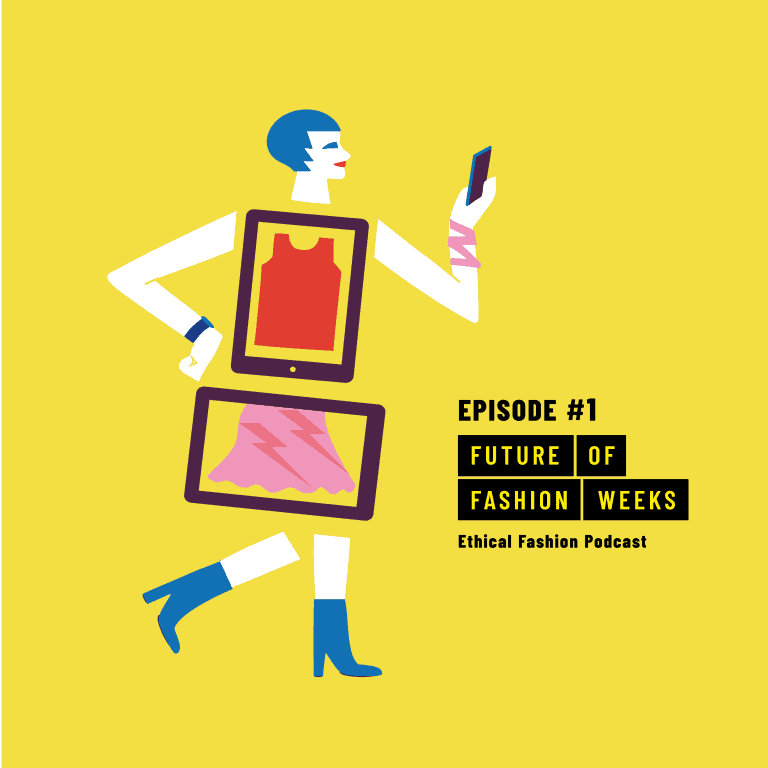
Episode 1
Welcome to the very first episode of the ETHICAL FASHION PODCAST! In this episode, your hosts Simone Cipriani and Clare Press speak to International Vogue Editor Suzy Menkes; Roberta Annan, founder of the African Fashion Foundation; writer and sustainability consultant Rachel Arthur; and Helsinki Fashion Week's Evelyn Mora. Up for discussion: What's wrong with the old system of international fashion weeks? How we might redesign the format to make it less polluting and more inclusive. Does everything have to go digital? How can we ensure no one gets left behind?
In May, the Ethical Fashion Initiative invited its community to bring its collective brain power to a hackathon. Why? To reimagine fashion’s business as usual. People from 60 countries, over 10 hours online, came up with creative solutions to four fashion challenges – the fashion week format, production & sales cycles, supply chains, and regulation.
A lot of people have been asking what went down so we’re starting our new podcast series with some episodes based on these themes, the first one being fashion weeks.
Simone reads from his Twyg mag op ed.https://twyg.co.za/opinion-expert-says-fashion-weeks-represent-an-industry-unwilling-to-change/
Our music is from the original production From Kabul to Bamako, music directed by Saïd Assadi.
This podcast was produced with the financial support of the European Union. Its contents are the sole responsibility of ITC Ethical Fashion Initiative and do not necessarily reflect the views of the European Union.
